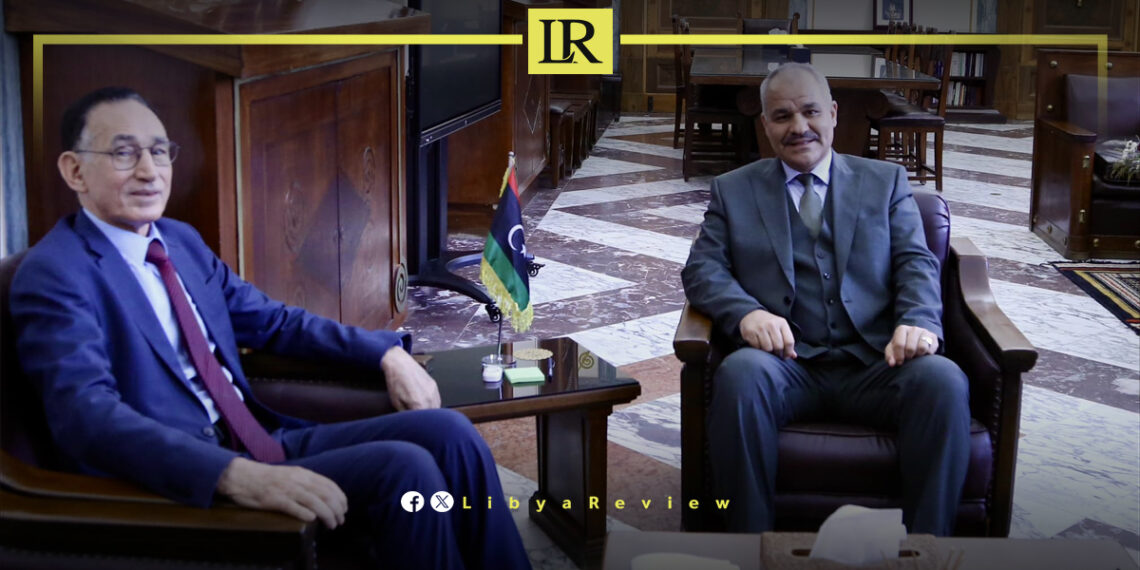The Governor of the Central Bank of Libya, Naji Mohammed Issa, met with Mohamed Al-Hwaij, Minister of Economy and Trade of the Government of National Unity, to discuss a unified approach towards combating economic fluctuations.
The talks focused on stabilizing prices, controlling inflation, and managing exchange rates against the Libyan dinar.
Both parties agreed to establish a joint task force composed of economic researchers. This team will assess market needs for goods and services, support local industries, and develop feasible proposals to strengthen Libya’s economic framework.
Libya has been in chaos since a NATO-backed uprising toppled longtime leader Muammar Gaddafi in 2011. For years, the county has been split between rival administrations.
Libya’s economy, heavily reliant on oil, has suffered due to the ongoing conflict. The instability has led to oil production and prices fluctuations, impacting the global oil market and Libya’s economy.
The conflict has led to a significant humanitarian crisis in Libya, with thousands of people killed, and many more displaced. Migrants and refugees using Libya as a transit point to Europe have also faced dire conditions.
The planned elections for December 2021 were delayed due to disagreements over election laws and the eligibility of certain candidates. This delay has raised concerns about the feasibility of a peaceful political transition.
Despite the ceasefire, security remains a significant concern with sporadic fighting and the presence of mercenaries and foreign fighters. The unification of the military and the removal of foreign forces are crucial challenges.


